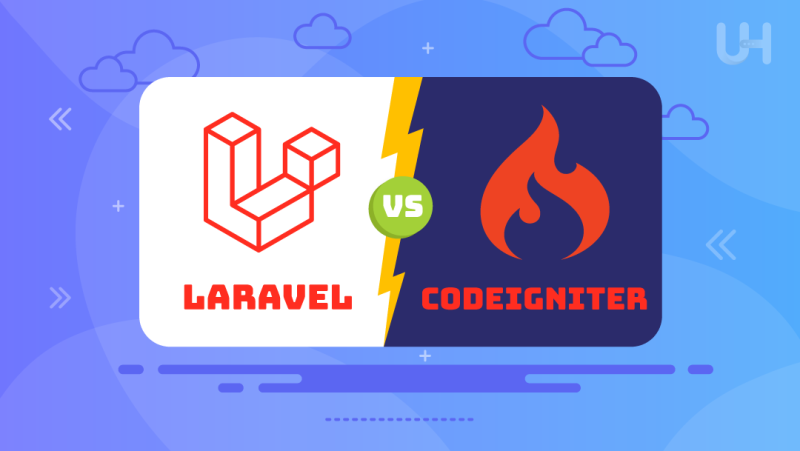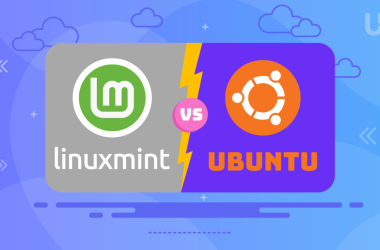Many developers have to deal with the problem of choosing the proper PHP framework. This may become a pain in the neck because a significant number of them exist. The two most highly spoken-of are Laravel vs CodeIgniter. Each has existed for the last few years and has its large group of true believers.
The big question is: Which one will be better in 2024, Laravel or CodeIgniter? This is a critical choice if you’re a developer or want to build a web application. Understanding the strengths and weaknesses will help you make the right choice. Let’s break down the main differences and see what’s happening this year.
Ease of Use
One of the first things to consider when choosing a framework is its ease of use. Laravel is known for its elegant syntax and ease of use. It follows the MVC architectural pattern, providing a lot of functionality. On the other hand, when CodeIgniter is on the best shared hosting plans or a dedicated server, it is often touted as the easiest of all.
Here, it’s more straightforward and lightweight, with very few pre-installed tools—which many find refreshing. However, CodeIgniter might be a little easier for those beginning with PHP frameworks at the very early stages of education. Laravel also has excellent documentation and a beneficial community.
Performance

Performance is another critical factor because when competing with Laravel vs Django or Laravel vs WordPress, Laravel always wins because it is packed with much built-in functionality, and by using the proper optimization techniques, you can run it efficiently. In contrast, CodeIgniter is lightweight by default because of its design—this typically gives better performance out of the box.
If speed happens to be a ton more important to you and you’re looking for something that can easily withstand severe traffic, then CodeIgniter could be the better choice. That said, Laravel has done a few things over the years to help improve the speed of things, and it also has several caching mechanisms that will further enhance speeds for you.
Security
Regarding security, Laravel stands at the top with all the built-in features. It provides protection against the most common types of vulnerabilities: SQL injection, cross-site scripting, and CSRF or cross-site request forgery. The out-of-the-box security provided is a critical reason developers needing high-security attention must go for Laravel. While Laravel offers built-in security features, a cheap SSL certificate is still an essential security measure for any web application.
CodeIgniter also has some interesting security features, but they are less exhaustive than Laravel’s. An additional effort is required to secure the CodeIgniter app. For developers, this tiresome who need more time, Laravel protects apps more conveniently and reliably.
Community Support
One of the things that makes or breaks your overall experience with a framework is community support, and Laravel has tremendous and active community support. There are just so many forums, tutorials, and packages available, which means you can be pretty sure that if you have a problem, another person has already solved it.
On the other hand, the Laravel community is, in general, hot and embracing. CodeIgniter’s community is smaller and more active than Laravel’s. But that doesn’t mean you’ll never find a solution if you need one. There are still plenty of resources for CodeIgniter, and the less complex construction often makes breakdowns easier to isolate.
Make the Right Choice for Your PHP Projects!
Wondering which PHP framework to choose in 2024? Discover the pros and cons of Laravel vs. CodeIgniter and make the best choice for your project with UltaHost’s reliable PHP hosting. Make the best choices for projects today!
Learning Curve
Another thing that will be noticed, mainly for each beginning in web development tools, is the learning curve. An increased learning curve is one of the specifications accompanying Laravel’s rich set of features and elegant syntax. There might be more time to get comfortable with all the conventions and tools Laravel has at your disposal.
While it takes a while to get used to Laravel, it enjoys development and makes it much more manageable. CodeIgniter is straightforward, so there isn’t such a steep learning curve. It’s easier to begin with, and one can learn fewer new concepts. If you need to get a project up and running quickly, CodeIgniter may be the best way.
Flexibility and Scalability
Any growing business requires flexibility and scalability. Laravel is highly scalable. Its architecture supports a few huge applications and easily integrates with other systems and platforms. If you plan on building an extensive application that might grow over time, then the robust ecosystem developing in Laravel will be very helpful.
While flexible, CodeIgniter may be less scalable than Laravel in the long term. It’s lightweight, so it is fantastic for small—to medium-sized applications. Still, when you need to scale up an application, you may feel limited by Lumen. Laravel is often preferred when working on large projects where long-term growth is in mind.
Built-In Tools
Laravel comes with many out-of-the-box tools that speed up and facilitate development. By default, It is equipped with powerful tools: Artisan—a command-line tool—and Eloquent ORM, an Object-Relational Mapper. It also has built-in authentication hooks. These tools help control development and sometimes even minimize the amount of code one has to write.
CodeIgniter is lightweight and not burdened by a significant number of built-in tools. This might be disadvantageous to some, but other developers appreciate the freedom to use any tool or library. If you enjoy working in a framework that comes with everything out of the box, then Laravel is the better choice.
Documentation
Add some good documentation and save many headaches. One of Laravel’s most celebrated features is its excellent documentation. It’s complete, well-organized, and covers almost all of the framework. The documentation for Laravel is handy whether you’re a first-time or seasoned developer. Documentation in CodeIgniter isn’t as deep as in Laravel, but it is still good.
You may be left searching elsewhere to pick up some intermediate-to-advanced guides and tutorials. However, most developers who use CodeIgniter argue that simplicity translates to a minimal need for documentation to get them up and running. Again, though, when considering having the most complete and helpful documentation, Laravel takes the cake.
Real-World Usage
The choice between Laravel and CodeIgniter in the real world depends on project needs. Laravel is typically used in large-scale, complex applications. It is highly resourceful and scalable, making it perfect for projects with high functionality demands.
Companies looking to build enterprise-level applications often lean toward Laravel. Due to its simplicity and speed, CodeIgniter is a favorite of many for small projects or when there’s little time. It is also the perfect solution if you are the kind of developer who likes straightforward development. Depending on the project’s requirements, either of these frameworks could be better.
Conclusion
Well, which one wins in CodeIgniter vs Laravel? It’s a challenging question to crack with a yes or no. The peculiarities of Laravel include high features, better community support, and scalability; hence, it fits perfectly for big and complex applications. On the other hand, CodeIgniter comes with simplicity, speed, and ease of use—something that one starting on a small project just needs or wants to get started immediately.
After all, the best framework depends on your project’s needs and what you want as a developer. Understand each framework’s strengths and weaknesses, then decide on the one that would work best for your project.
Get optimized applications with lightning-fast performance only from UltaHost’s fast servers for Laravel or CodeIgniter. Enjoy UltaHost’s superior speed and reliability even under heavy traffic.
FAQ
Which one is easier to learn: Laravel or CodeIgniter?
The case differs from Laravel, which has a steeper learning curve due to its rich features, but again, substantial documentation is a redeeming factor. CodeIgniter is more accessible and less complicated for beginners.
For Large-Scale Applications, Is Laravel Better?
Indeed, Laravel is very scalable and can be used for large, complex applications. The architecture gives room for growth and further integration with other systems.
How does CodeIgniter compare in performance to Laravel’s?
Although CodeIgniter is lightweight and often faster out of the box, Laravel can perform well if adequately optimized.
Which framework has better security features?
Laravel has more built-in security features against these common vulnerabilities, especially in SQL injection and cross-site scripting.
Can I find good community support for both frameworks?
Yes, both are active communities. Again, Laravel dominates the scene with its most significant and active community, thus offering many resources and support. The CodeIgniter community is smaller than the former, though still very helpful.










